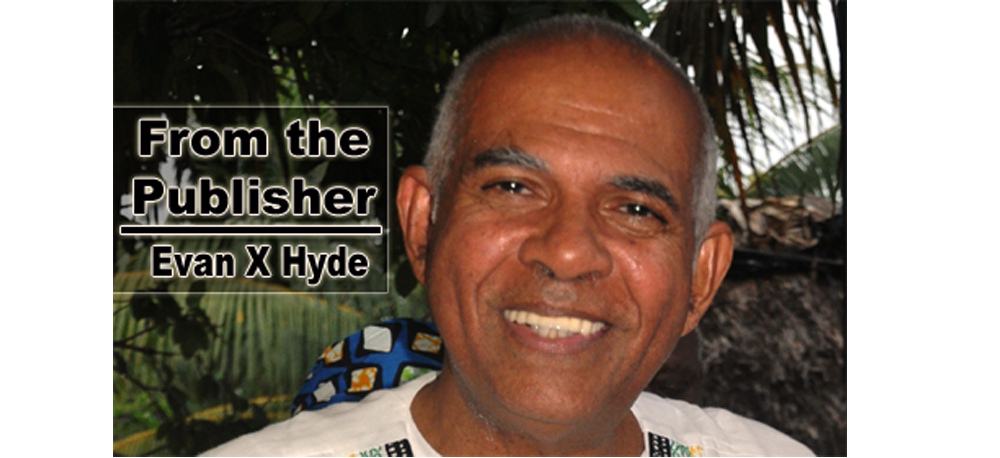The late Emory King, who was the right-wing scribe representing the interests of the large business houses in British Honduras/Belize when UBAD burst on the local scene in 1969, used to argue that we UBAD were bringing a problem, the race issue, to Belize from the United States. He famously declared that race in Belize was a “family affair,” so Belize had no race problem.

Unbeknownst to me when I returned home in 1968 from America, was that there had been a small group of black activists, members of Hon. Elijah Muhammad’s Nation of Islam, who had been struggling to get off the ground from early in the 1960s. What I brought to their table, naive as I was, were the academic credentials they needed to establish their credibility. For their part, they gave me protection from the power structure.
Looking back, I realize that UBAD, after it had grown to include many young people, divided in 1973 because there was a faction which saw Mr. Price’s ruling PUP as the ultimate enemy, whereas I was looking beyond to regional and international neocolonialism/imperialism as the one-thousand-pound gorilla.
In a sense, these things don’t matter so much anymore because we had twelve and a half years of a black Cabinet here between 2008 and 2020, and basically all we got out of that was one or two “black” families becoming super rich.
The Southside continued to deteriorate, disintegrate even, having spawned the seriously divisive gang conflicts in the late 1980s/early 1990s, fuelled by the drug trade, in the first instance. Today, it seems as if half the Southside children barely finish primary school.
A white American named John L. Stephens visited British Honduras when the Southside was in a kind of prime in late 1839. You will find his description of the Southside residents interesting, so I will quote Stephens in the italicized paragraphs which follow. What I sensed from his material was a kind of civic pride amongst Southside people back then which does not exist today, many successful families having moved out of Belize Town/City to the suburbs and the countryside in the last four or five decades:
Retracing our steps, for the second time I passed the whole length of the principal street, and the town seemed to me to be in the entire possession of blacks. The bridge, the market place, the streets and stores were thronged with them, and I might have fancied myself in the capital of a negro republic. They were a fine-looking race, tall, straight, and athletic, with skins black, smooth, and glossy as velvet. And they were well dressed, the men in white cotton shirts and trousers, with straw hats, and the women in white frocks with short sleeves and broad red borders, and adorned with large red earrings and necklaces. I could not help remarking that the frock was their only article of dress, and that it was the fashion of these sable ladies to drop this considerably from off the right shoulder, and to raise the skirt, which was held in the left hand, to any height necessary for crossing puddles.
I stopped at the home of a merchant, whom I found at what is called a second breakfast. The gentleman sat at one end of the table and his lady on the other. At the head was a British officer, and opposite him a mulatto; on his left was another officer, and opposite him also a mulatto. By chance, a place was made for me between the two colored gentlemen; some of my countrymen, perhaps, would have hesitated about taking it, but I did not. Both were well dressed, well educated, and polite. They talked of their mahogany works, of England, hunting, horses, ladies, and wine. Before I had been an hour in Belize, I learned that the great work of practical racial amalgamation, the subject of so much angry controversy at home, had been going on quietly here for generations; that color was considered a mere matter of taste; and that some of the most respectable inhabitants had black wives and mongrel children, whom they educated with as much care, and made money for with as much zeal, as if their skins were perfectly white. I hardly knew whether to be shocked or amused at this condition of society.
Incidentally, Mr. Price brought in Emory King to edit the PUP newspaper, The Belize Times, when he was preparing for the 1979 general election. At the time, the PUP was being accused of communist sympathies because of the Shoman and Musa presence in their leadership, so Mr. King probably did a good job of neutralizing some of those accusations amongst the business class.
The other people in the photograph are the late Hamid Musa (right) and Manolo Romero (center). Mr. Musa, Said’s father, was the general manager of The Times, and Manolo was a reporter and the newspaper’s photographer.

